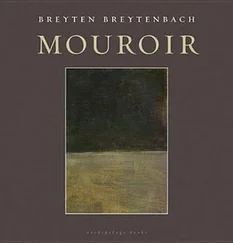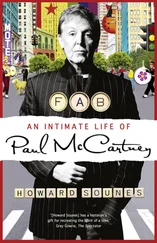On Sunday, after adjudicating an essay called “A Dictionary of Winds” the best entry, we go up the hill to visit Buchenwald. It is so close by — a raven could bridge the distance like an open hand writing a single line of invisible ink without even thinking! And yet, how distant it is.
There are trees up there, many trees, and clouds racing through a high-domed light-soaked sky, and birds fluttered by the wind, and probably insects in the soil too. There’s a breathtaking view over the gentle surroundings of flowing valleys and peaceful towns where Goethe must have taken his walks. And suddenly it is cold, so desperately cold — as if we’d moved into another world.
We have moved into another world. We shouldn’t have come.
A young man takes us through the camp. He is thickset and has dark half-moons under his eyes; he speaks English with a Scottish accent, probably that of the soccer fan, but the German breaks through painfully. He blurts out figures and facts relentlessly. This was a training ground for the SS, he tells us. Already from as early as 1934. They came here young, sometimes only 16 years old. They were to be the new elite to revolutionize society. New Man could only be unshackled in a hierarchy of self-abnegation and arbitrary violence and torture. He saw this job as guide advertised in the newspaper, the young man says, and so he applied. Sometimes he wonders. He has met survivors. He asked them: “What were your first thoughts when you woke up in the mornings here?”
We are shown the barracks. We see the exact replica of the small zoo where officials brought their families on Sunday outings — hardly three meters away from the barbed-wire enclosure keeping in the inmates. We pass through the narrow wrought iron gate to the inner camp, with its mocking iron letters: Jedem das Seine (to each his own). Then we see the bare expanse, the broad view from up here overlooking the world with its harvests.
And then we’re taken to the execution block, the tiles of the autopsy room, the furrows to sluice away the blood, the instruments shiny and elegant like slivered mirrors or like pebbles. Then the ovens and the urns, and in the basement the hooks and the piano wire. . We should not have come here. I’m so sorry.
But this I cannot look at. This then is the Other. This is Me. This is what we do. This is what we’re like. Vietnam. Ruanda. Kosovo. Afghanistan. Iraq.
We cling to one another. The wind is in our eyes and in our throats. A beautiful sunset purples the sky. Grandfather sky and father sky and son sky. (And man.) Grandmother wind and mother tree and daughter bird and grandchild insect through all the ages. And man once only. Once is enough.
Back in the hotel, Andrej Bitow gives me a full glass of vodka, “to take the shiver out of the soul.” He clumsily cuts up an apple with a bottle opener. “One must always have an apple with the vodka,” he says. “Now go and take a hot bath.”
Immediately I fall into a bottomless sleep. I have a first dream.
A bright, sylvan scene. A clearing in the forest. We hear, at the periphery of our eyesight, a thrashing in the undergrowth. As if somebody (or something) is observing us from the invisibleness, but clumsily now camouflaging its presence. We then know it is an immortal. How can he be lured forth? Only one thing will work. We peg down a book in the sun-filled glade. This will be the irresistible bait. We know he/she is desperate to know what’s written. Does the wind turn over the leaves of the book? Can the wind read? And what is the title? I’m so sorry.
How rotten with memory this earth is! And how the one thing slides over the other! When does memory become obliterated? Can we write everything? Are we not obliged to approach obliquely, camouflaging our presence, turning away our faces? Can we see Goethe whole?
It should have been burned to the ground and left to the wind. The town, too, should have been given over to the dark ink of time. No memorial, no ceremonies, just the salted earth forever. Because we have no right to remember.
Thereafter the night turns, and it is empty. And when we take leave the next day to return to our respective cities of time and of rhythm, Andrej Bitow and I, as writers from nowhere at the end of one century and the beginning of another, exchange the empty bound books that we had been given by the organizers. He writes in the copy which he hands me:
“I would like to present you something. But we, in our monastery, have nothing. .” Underneath he jots: “For writing nothings.”
And in my copy to him I note: “1. Thou shalt not kill. 2. Thou shalt laugh with thy whole face and thy whole belly. 3. Thou shalt study the expressions on the faces of ants.”
exile
memories terribly leaked away
(Sappho)
will you stay with me as far as I go
brother stone still throb with the stillness
of a spoilt moon rotting and rending
the sea of stars
era la negra
negra solitud de las islas
there was
the black aloneness of islands the hard
cold hour deserted like the wharves at dawn
when cold stars and whales heave up
black
birds migrate as free goddesses leaving port
y solo la sombra trémula se retuerce en mis manos
(and only the tremulous shadows twist in my hands)
what were you before I found you
Neruda what
who was I before you made
yourself known and how will I know you
brother stone petrified eye of time
fearless and lidless or tongue
and if so what word was stilled
as vowel of eternal becoming
qué dolor no exprimiste qué olas no te ahogaron
say
what sorrows did you not express
what waves did not drown you
say
I was told
that with you to put on top of the head
I would stop growing to darkness and wings
because you would be my moon mind made visible
to trace and confine the shadowy earth
I was told
that with you as word in the mouth
I would never again tire of flying
in place
as tiredness itself would be pronounced
a grave pebble under the tongue
and when
and then
and now
es la hora de partir oh abandonado
when it will be the hour of departure
will you stay my hand
brother
stone
be the marker of my absence
KNOWING IS ALWAYS A FUNCTION OF GRAMMAR
Mind is an insatiable gormandizer. You, as toilsome writer, will lay down a page, perceptibly mind will devour it and ask for more without giving so much as a passing thought to the time and the pain of composition. One never knows when one has had enough. To become conscious is to be alienated. Perhaps the price of survival or the penitence for alienation is to never reach satisfaction. Does one experience this feeding frenzy because Reality cannot be hunted down or recovered?
Mind slurps up the surroundings and presents as justification that the about-mind can only take on shape through the process of swallowing-and-integration. A partisan and parasite argument, if I ever heard one! This may be true if one accepts that it is impossible to know anything except through the subjective point of being. And that no other shape of knowledge can exist. For something doesn’t exist until I have taken cognition of it. (But this taking-notice-of or getting-acquainted-with may be unexpectedly sudden and brutal, as with a lamppost in the dark, or with death.)
Now this happens: the gorging and digestion of consciousness is the creation of unawareness. And also a replacement. There is neither ‘environment’ nor ‘world,’ only the waxing and chiming of consciousness. But equally true: without surroundings there can be no coming to consciousness. I cannot be without becoming, and only become in reference to that which stimulates me to understanding or reflection. Mind is but a growing awareness of the existing environment. Mind is but a tiny reflex action of an unborn and immortal and all-pervasive rhythm. Mind opens up, opens up, and doesn’t exist. The most pure being is to stop being, is nonbeing. It is also the Buddha nature. Mind is movement.
Читать дальше












